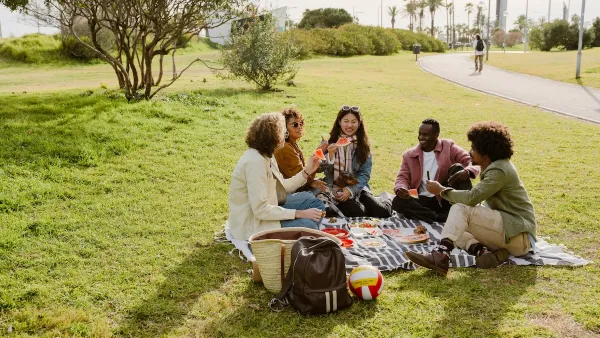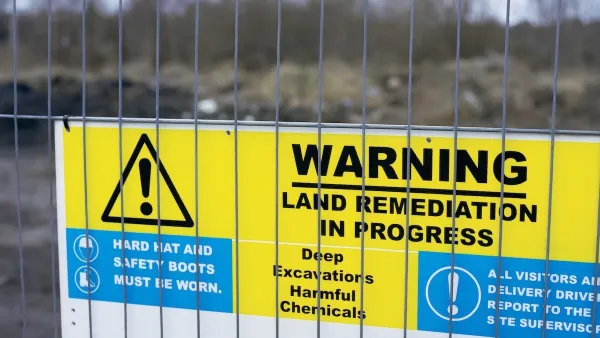It's kind of hard to tell, on a day-to-day basis, that humankind is drastically affecting the health of the environment -- a reality that makes arguing for sustainability even more difficult, according to Harry West.
In this piece from Fast Co. Design, West argues that many environmental issues are placed out of mind because they can't easily be seen.
"A couple of years ago at Continuum we made a study of how regular people think about sustainability. We learned that basically, people care most about themselves and their family, and then they care about problems they can see. People focus on recycling because they can see the stuff they recycle; they are concerned about plastic because they can see that it is not a natural material. People cannot see greenhouse gasses, and they cannot see the history of what they use, so it is difficult for people to care as much about meat, lighting, travel, heat, air conditioning, etc. Even though these elements are a far larger part of our carbon footprint, they don't feel unnatural in the moment, and you cannot see the environmental impact of their production."
FULL STORY: Why Don't Regular Joes Care About Sustainability?

Planetizen Federal Action Tracker
A weekly monitor of how Trump’s orders and actions are impacting planners and planning in America.

Map: Where Senate Republicans Want to Sell Your Public Lands
For public land advocates, the Senate Republicans’ proposal to sell millions of acres of public land in the West is “the biggest fight of their careers.”

Restaurant Patios Were a Pandemic Win — Why Were They so Hard to Keep?
Social distancing requirements and changes in travel patterns prompted cities to pilot new uses for street and sidewalk space. Then it got complicated.

Platform Pilsner: Vancouver Transit Agency Releases... a Beer?
TransLink will receive a portion of every sale of the four-pack.

Toronto Weighs Cheaper Transit, Parking Hikes for Major Events
Special event rates would take effect during large festivals, sports games and concerts to ‘discourage driving, manage congestion and free up space for transit.”

Berlin to Consider Car-Free Zone Larger Than Manhattan
The area bound by the 22-mile Ringbahn would still allow 12 uses of a private automobile per year per person, and several other exemptions.
Urban Design for Planners 1: Software Tools
This six-course series explores essential urban design concepts using open source software and equips planners with the tools they need to participate fully in the urban design process.
Planning for Universal Design
Learn the tools for implementing Universal Design in planning regulations.
Heyer Gruel & Associates PA
JM Goldson LLC
Custer County Colorado
City of Camden Redevelopment Agency
City of Astoria
Transportation Research & Education Center (TREC) at Portland State University
Camden Redevelopment Agency
City of Claremont
Municipality of Princeton (NJ)





























